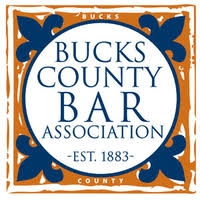Pennsylvania’s New Arbitration Act: What Non-Litigators Should Know
Written by Bill MacMinn
On July 1, 2019 arbitration agreements in Pennsylvania will be governed by the Revised Uniform Arbitration Act (RUAA). RUAA revises the Uniform Arbitration Act which has been in force in Pennsylvania since 1980. What should non-litigators know about RUAA?
1. Application
RUAA applies on a mandatory basis to all agreements to arbitrate signed after July 1, 2019. In addition, the parties to an arbitration agreement executed before July 1, 2019 can agree that RUAA’s provisions govern.
2. Common Law Arbitration
Since 1980, Pennsylvania has had in effect two options for arbitration. Parties could specify that their arbitration was governed by the terms of RUAA’s predecessor, the Uniform Arbitration Act. If they did not do so, governance of the arbitration defaulted to common law arbitration rules. Both the Uniform Arbitration Act and common law arbitration (despite its name) were codified in Pennsylvania’s Judicial Code. RUAA abolishes common law arbitration in Pennsylvania.
3. Impartiality of Arbitrators
RUAA includes disclosure requirements not previously found in the law. Under RUAA an arbitrator must make a reasonable inquiry to determine the existence of any facts which a reasonable person would consider likely to affect an arbitrator’s impartiality. These include a personal or financial interest in the outcome of the case, past or present relationships with the parties, their attorneys or representatives, witnesses or other appointed arbitrators. Disclosure of any such facts must be made. Failure to do so may constitute grounds to vacate any award. To preserve the right to claim partiality after disclosure, timely objection must be made and if the arbitration agreement or rules of the arbitration organization provide rules to challenge the appointment, such rules must be followed.
4. Immunity of Arbitrators
Arbitrators are afforded immunity under RUAA to the same extent that a judge, sitting in a civil action would be immune.
5. Consolidation
RUAA provides that under certain circumstances a court may order consolidation of multiple pending arbitration matters, unless the agreement prohibits such consolidation.
6. Interim Remedies
Before an arbitrator is appointed, RUAA permits the Court to enter a provisional or interim order to protect the effectiveness of the arbitration proceeding. Once appointed, an arbitrator can modify the Court’s provisional order or enter a provisional order his own. Such orders include temporary restraining orders as well as the issuance of liens and preliminary injunctions.
7. Discovery
Before RUAA, there was no guidance on the conduct of discovery other than the power granted to the arbitrator to issue subpoenas and to take testimony of witnesses who could not attend the hearing by deposition. Typically, limited discovery was conducted by agreement of the parties. RUAA makes it clear that the arbitrator can order discovery as appropriate in the circumstances and sanction a party who fails to comply with discovery requests.
8. Is a Hearing Required?
No. The arbitrator can determine that the case does not require an evidentiary hearing and if so, make a decision without holding one.
9. Attorney’s Fees, Costs and Punitive Damages
Attorney’s fees and punitive damages can be awarded to the extent that these remedies are permitted under the law in a civil action. RUAA carries forward the power granted to arbitrators under prior law to apportion the cost of the proceeding, including the fees of the arbitrators between the parties.
10. Modification and Waiver
RUAA permits waiver or modification of its provisions except for eleven provisions which cannot be waived or modified at all, and nine provisions which can be waived or modified but only after a controversy subject to arbitration arises. Examples of the former are the RUAA provisions regarding its applicability and regarding immunity of the arbitrators. Examples of the latter are the rights to seek provisional relief and the arbitrator’s disclosure provisions.
RUAA is a welcome update to Pennsylvania law. Its provisions will bring some order to a forum that, in some circumstances, was the Wild West.
AMM Partner and Corporate Department Chair Joanne Murray was recently interviewed by Laura Queen, Founder and CEO of 29Bison Human Capital consulting firm for their podcast “How the Deal Was Done”. In this episode, Joanne discusses the path that lead her to her business law practice, as well as her approach to the deal making process and the complexities involved. The interview features the haunting tale of how the ghosts of owners past and present can make an appearance at the closing table, and one such ghost who almost scared away a deal!
Joanne Murray is committed to helping small business owners achieve their goals. From inception to business maturity, Joanne serves as an experienced and insightful counselor to business owners as they face the financial, legal and operational challenges that are an inevitable part of the life cycle of a business.
Joanne helps to guide entrepreneurs and closely-held businesses through the new entity formation process and to structure, negotiate and implement business transactions such as asset and stock acquisitions, mergers, financing transactions, real estate purchases and leases, and business separations. She also assists her business and nonprofit clients with negotiating a wide range of contracts, such as software licenses, consulting agreements, employment agreements and non-disclosure agreements. She works with business owners to develop, document and implement their business succession plans, including preparing buy-sell, partnership and LLC agreements. She frequently functions as outside general counsel for companies and nonprofit entities by handling corporate record-keeping and providing advice on corporate governance and other matters as needed.
Partners Thomas Donnelly and Elizabeth Fineman of Antheil Maslow & MacMinn will speak at the third annual Business Law Institute of the Bucks County Bar Association where they will discuss business issues in divorce and family law. The seminar will take place on May 14, 2019 at the Bucks County Bar Association in Doylestown. The discussion will include business control issues, the impact of agreements among business owners on Equitable Distribution and Support, as well as remedies and valuation concerns and strategies.
Thomas Donnelly is a business and commercial litigation attorney with a focus on complex business transactions and disputes. Elizabeth Fineman practices exclusively in Family Law with extensive experience in complex high net worth individuals with complex assets and tax valuation issues.
The Bucks County Bar Association is one of the oldest and most active bar associations in the United States. Located in Doylestown, Pennsylvania, the Bucks County Bar Association is dedicated to providing support and fellowship for the advancement of the legal profession.
Reasonable Accommodations: A Jury Verdict Provides Practical Lessons
Written by Patricia Collins
Reprinted with permission from the April 19th edition of The Legal Intelligencer. (c) 2019 ALM Media Properties. Further duplication without permission is prohibited.
On April 12, 2019, in the United States District Court for the Western District of Pennsylvania, a jury returned a verdict that serves as a reminder to employment law practitioners of the importance of treating mental health issues with sensitivity and consistent with the Americans with Disabilities Act (“ADA”) and taking a practical approach to reasonable accommodations. The jury in Schirnhofer v. Premier Comp Solutions LLC, Western District of Pennsylvania docket number 2:16-CV-00462, found that the employer, Premier Comp Solutions LLC (“Premier”), had discriminated against the Plaintiff, Ms. Schirnhofer, on the basis of her mental health disability, and in violation of the ADA. The jury awarded Ms. Schirnhofer $285,000 in damages: $35,000 in backpay, and $250,000 in non-economic damages.
This summary of the facts of the case is drawn from the Court’s opinion on Premier’s summary judgment motion, issued on March 28, 2018. Ms. Schirnhofer began her employment at Premier in 2009, and was terminated on February 5, 2014. She was employed as a billing assistant in the billing department. During the course of her employment, she had good performance reviews. Ms. Schirnhofer was diagnosed with anxiety and other mental health issues prior to her employment with Premier. Her condition was exacerbated in 2012 when her newborn grandchild died, and a co-worker with whom she was close left Premier. What followed was a series of interpersonal problems, and conflicts with and complaints about co-workers. Premier’s president and Ms. Schirnhofer’s co-workers had referred to her as “Sybil” (referencing a character in the movie Sybil who suffered from mental health issues). The human resources representative noted that she should seek “medical attention.” Ms. Schirnhofer eventually asked for a reasonable accommodation in the form of two additional ten-minute breaks. She provided a letter from her physician regarding the need for such breaks to accommodate her Post Traumatic Stress Disorder and her Generalized Anxiety Disorder. On January 28, 2019 Premier denied the request, despite the advice of its human resources professional to provide the accommodation. Instead, Premier offered to move her work area. On a particularly bad day in February, 2014, Ms. Schirnhofer took to Facebook to vent her anxiety. She was terminated on February 5, 2014 for her Facebook posts in violation of Premier’s Social Media policy. Ms. Schirnhofer sued, alleging that Premier had terminated her in retaliation for her request for an accommodation, that Premier had discriminated against her in violation of the ADA, and that Premier had failed to provide a reasonable accommodation. The jury returned a verdict in her favor on the issue of discrimination, but found that Premier had not retaliated against Ms. Schirnhofer.
The lessons for employment law practitioners in this verdict are many, among them: mental health issues and accommodations are subtle, and require sensitivity; requests for reasonable accommodations provide an excellent opportunity for risk management; and, it is quite expensive to be wrong.
Employer's Potential Liability for Third Party Harassment
Written by Michael Klimpl
The increased attention to sexual harassment in the work place is reflected in the increasing number of sexual harassment suits filed by the United States Equal Employment Opportunity Commission-a federal agency whose responsibilities include enforcing federal nondiscrimination laws.
This trend magnifies the need for employers to be aware of an opinion by a judge of the United States District Court of the Eastern District of Pennsylvania, holding that an employer may be liable for the sexual harassment of one of its employees by a nonemployee.
In this case, Hewett v. BS Transportation of Illinois, LLC, et al., the Court considered various claims by an employee, Hewitt, including a claim of sexual harassment, against his employer, BS Transportation.
Specifically, Hewitt alleged that he was a freight driver for BS Transportation whose job responsibilities included weekly loading of oil at a Sunoco refinery.
According to the allegations in Hewitt’s complaint:
During the course of Hewitt’s employment, a Sunoco employee sexually harassed Hewitt, first with sexual
comments and hand gestures and then after Hewitt asked the employee to stop, with more aggressive behavior including
physical contact. Hewitt made complaints to the Sunoco employee’s supervisor, as well as Hewitt’s supervisor at BS
Transportation who was also the owner of BS Transportation. Although Hewitt’s supervisor indicated he would
“handle the matter” with the Sunoco employee, the supervisor did not investigate the complaint nor did the Sunoco
employee’s supervisor. After a pause in his harassment of Hewitt, Sunoco’s employee again engaged in sexual
harassment of Hewitt, who again complained to Hewitt’s supervisor. Hewitt’s supervisor did not notify Sunoco of
these latest actions by the Sunoco employee. Shortly after the resumption of the harassment, Hewitt’s employment
with BS Transportation ended.
As a result of the alleged harassment described above, Hewitt filed suit in federal court alleging, among other claims, sexual discrimination by BS Transportation in violation of Title VII of the Civil Rights Act of 1964. (The Court dismissed claims against Sunoco and its employee). While dismissing certain claims against BS Transportation and its supervisor, the Court did permit the sex discrimination claim to proceed-deeming it a claim of hostile work environment. (The Court in allowing the case to proceed did not make any factual findings regarding Hewitt’s allegation. Rather the Court needed to decide at this stage whether Hewitt stated a plausible claim against his employer).
The Court noted that the claim in this case was not like most claims of employment discrimination, where the offending conduct is alleged to have been committed by an employee of the employer. This case instead involved a nonemployee. The Court, however, allowed the case to proceed based on the allegations that a management -level employee (Hewitt’s supervisor)of BS Transportation was aware of the harassment complaints and failed to investigate or take appropriate action and that BS Transportation failed to notify Sunoco when Sunoco’s employee allegedly resumed harassment of Hewitt.
Pointing to decisions of other courts, the Court in this case held that an employer may be liable for employment discrimination “where the employer (or its agents or supervisory employees) knows or should have known of the conduct and fails to take immediate and appropriate action”(quoting Johnson-Harris v. AmQuip Cranes Rental ,LLC). The Court ruled that Hewitt had alleged sufficient facts to let the matter go forward. The Court also found that Hewitt stated a claim (yet to be proven) that BS Transportation’s supervisory employee had aided or abetted an unlawful discriminatory practice under the Pennsylvania Human Relations Act.
The obvious takeaway from this decision is that an employer must have procedures in place to immediately and thoroughly investigate claims of workplace discrimination of any type. These procedures, of course, go along with anti-discrimination policies and procedures that may be used by an employee to file a complaint with the employer.
The less obvious lesson from this case is that an employer could be found liable for the unlawful conduct of a nonemployee if it fails to take appropriate action, including a thorough investigation. The reasoning of this case can easily be applied to other nonemployees who come into contact with an employer’s employees- vendors, outside maintenance personnel, salespeople, customers and so on. An employer must be alert as to any such claim that could give rise to a lawsuit.
Antheil Maslow & MacMinn, LLP is proud to sponsor National Alliance on Mental Illness (NAMI) Bucks County, PA's Stride for Mental Health Awareness walk. The walk is Saturday May 18th beginning at 1 pm at Warminster Community Park, 350 E. Bristol Road, Warminster. Funds raised support NAMI Bucks County's education and support program expansions throughout the area. NAMI Bucks County is dedicated to raising awareness and providing support and education to end the stigma that surrounds mental health issues, and promote recovery for individuals living with mental illness. For more information, to donate, sponsor and register, visit www.namibucksstride.org.
Antheil Maslow & MacMinn Co-founding Partner Susan Maslow received the Central Bucks Chamber of Commerce Business & Arts Award at the Chamber's 73rd Annual Celebration Luncheon on Friday, April 12th. This is the Chamber's 23rd Business and Arts Award, which is bestowed on a business person or organization that has extended itself in support of the arts in the community. Ms. Maslow is being recognized for her extraordinary commitment and creative dedication to the arts in Bucks County through her efforts on the many Bucks Fever Award premier events and other cultural Chamber endeavors.
Susan Maslow is an experienced general business and transactional attorney, with a long history of service on a variety of local nonprofit boards including Big Brothers Big Sisters Bucks County, Bucks County Women's Advocacy Coalition, and Pearl S. Buck International. She has been active on the Central Bucks Chamber of Commerce Board of Directors since 2008, and is the current Vice President of Cinema for the Bucks Fever Arts Program.
Recently, the Bucks County Bar Association (“BCBA”), an organization of attorneys dedicated to promoting and advancing the legal system and justice throughout Bucks County, conducted a plebiscite (peer evaluation) to evaluate ten attorneys who announced their candidacy for three vacancies on the Bucks County Court of Common Pleas, and the four current Judges of the Bucks County Court of Common Pleas who are running for retention.
Election day is Tuesday, May 21st. To assist in your decision making, here is a link to the plebiscite results.
A Post Divorce Checklist: Finish Things the Right Way and Sail Into the Future
Written by Mariam IbrahimThe divorce is final. No more deadlines to meet, papers to file or waiting time for all of it to be over. Now that the hard part is behind you, it is time for a fresh start. However, there might be a few things remaining for you to do before you can officially move on to the next chapter.
The following is a checklist of things that you might still need to do after your divorce is finalized:
- Review your divorce decree and create a list of things that you and your former spouse still need to satisfy. It could help if you create a calendar to visualize when certain things are due such as alimony/child support payments or when certain things are scheduled to terminate.
- Divide investment assets and retirement plans according to the terms of the divorce settlement agreement. Dividing a 401(k) or pension will require a Qualified Domestic Relations Order (QDRO). A QDRO is a court order telling the administrators of the retirement plan or the 401(k) how to divide the account. Most QDROs need to be drafted by an attorney or a CPA, signed by you and the former spouse, filed with the court and signed by a judge. If you are the recipient of a portion of your former spouse’s retirement account and you need the QDRO, it is imperative that you follow-up with your attorney to ensure the implementation of the QDRO is done in a timely fashion.
- Update all beneficiary designations with your workplace retirement plans, investment accounts, retirement accounts, trusts, annuities, life insurance, bank accounts, credit cards and any other place you might have listed your former spouse as a beneficiary.
- Obtain your own insurance coverage for your health, automobile, home and life insurance.
- Review your credit report to cancel any joint credit cards and close any joint accounts. Also, look through your credit report for any joint debts that you were not aware of.
- Update your estate planning documents including your will, any trusts, durable and health care power of attorneys. If you never had a will, this is a good time to consider making one.
- Change your emergency contacts with your workplace, doctors, health club, etc.
- If you changed your name back to your maiden name, you will need to notify different agencies. Most importantly, you will need to change your name on your social security card, passport and your driver’s license. You should also consider changing your name on your social media accounts.
- Consider changing your passwords to any emails or online accounts (i.e. Paypal, Facebook, etc.) that you might have shared the access information with your former spouse. Confirm that your spouse isn’t either a signer or authorized user on any of your online accounts.
- After the divorce, your financial circumstances have likely changed. You should consider developing, by yourself or with the help of a professional, a new financial plan for your new life.
Getting these things done might seem a burden now, after all you have been through, but it is necessary to avoid trouble later on. It is better that you go through this checklist and handle these issues as soon as your divorce is finalized to prevent possible future complications.
Once these things are done, you get to close that chapter and enjoy your new life with no worries about unhandled matters left over from the divorce.
Elizabeth J. Fineman, a Partner with the law firm of Antheil Maslow & MacMinn, LLP in Doylestown, Bucks County has been named co-editor-in-chief of the Pennsylvania Bar Association Pennsylvania Family Lawyer magazine. Ms. Fineman shares editor duties with Judy McIntire Springer of Astor Weiss Kaplan & Mandel, LLP in Philadelphia.
Fineman practices exclusively in family law and handles a variety of issues, including divorce, child support, alimony/spousal support, marital taxation, equitable distribution and child custody matters. She has handled many high-income support cases involving an intricate knowledge of both family law and complex financial issues.










